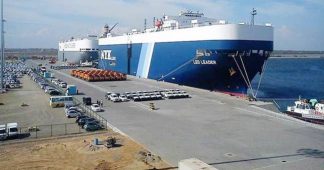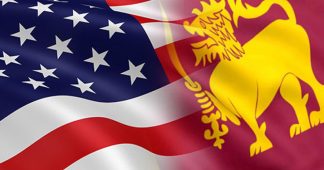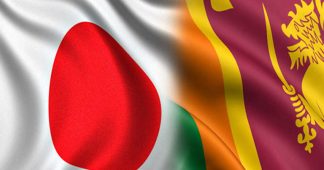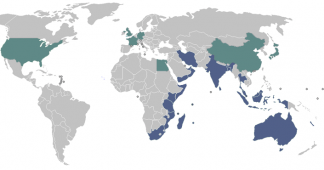By Daya Gamage
2019-02-12
The Acquisition and Cross Servicing Agreement (ACSA) signed between the Governments of Sri Lanka and the United States in March 2007 which allowed both countries to transfer and exchange logistics supplies, support, and re-fueling services clearly benefitted the United States in its military operation in the Asia-Pacific region – specifically US Pacific Command (USPACOM) which is now US Indo-Pacific Command (USINDOPACOM) – but left Sri Lanka with absolutely no benefit from the U.S. at a time Sri Lanka was in an intense military battle with the separatist Tamil Tigers.
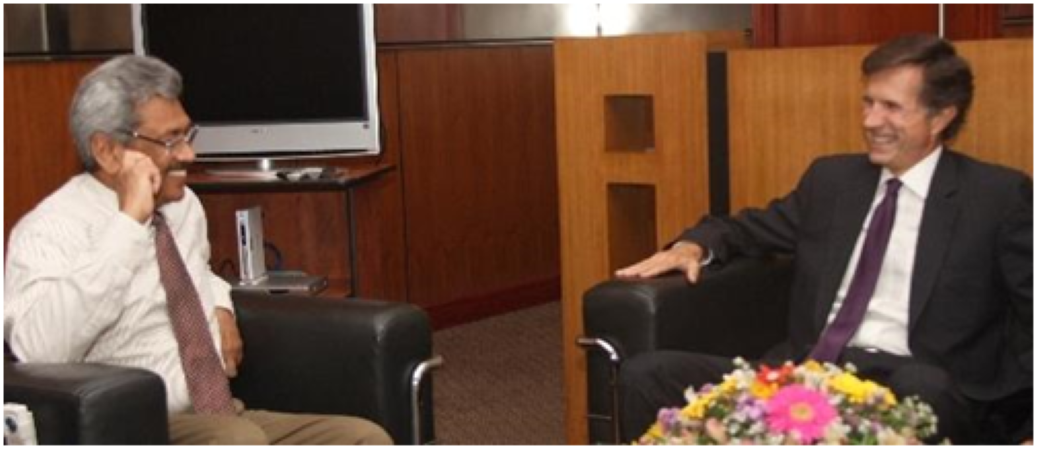
It provided – and even now provides after it was renewed in July 2017 – logistic support to the USINDOPACOM responsible for military operations in an area stretching from the waters off the west coast of the United States to the west coast of India.
The United States continues to receive logistic support from Sri Lanka when the Agreement was extended by the current Sri Lanka administration in July 2017 when several US military ships called on Sri Lankan ports, Trincomalee and Colombo, and US military aircrafts received logistic support at the Katunayake International Airport as reported including this Online newspaper in its report Sri Lanka: A military logistic hub for the U.S.(http://asiantribune.com/node/92537).
The benefit Washington extracted from the 2007 ACSA, and how Colombo was deprived of US military assistance – at a time Sri Lanka’s sovereignty and territorial integrity was threatened by a domestic terrorist movement that had its tentacles all over the world – was clearly stated in two diplomatic cables – one dated January 31 and the other on February 20 – dispatched by the U.S. Embassy in Colombo to the State Department before the agreement was signed in March 2007 between the GSL and USG.
31 January 2007 diplomatic cable signed by the American ambassador Robert Blake – who himself was a signatory to the ACSA on behalf of the US Department of Defense – wrote (Quote) The USG faces some risk that the Government of Sri Lanka might seek to exploit the signing to convey the USG’s support for possible ongoing offensive military operations.
The USG has informed the GSL that we oppose large scale offensive military operations because we believe the Government should focus on developing a power-sharing proposal that can form the basis for peace negotiations with the LTTE. (End Quote)
The 20 February 2007 diplomatic cable dispatched to Washington signed by Ambassador Robert Blake stated:
(Quote) Sri Lanka, positioned astride major sea lanes and at the doorstep to India, can play a significant role in military readiness as political and military efforts shift focus on Asia in the new millennium.
The signing will expand DoD’s capacity and capability to conduct global operations by adding another logistical option in South Asia and provides flexibility to U.S. forces moving through the region.
Since this agreement primarily benefits U.S. forces, we think there are strong arguments to proceed with signing the agreement. (End Quote)
According to the February 20 diplomatic cable, U.S. Embassy in Colombo informed Washington the interpretation the embassy gave the Government of Sri Lanka about the ACSA:
(Quote) The Acquisition and Cross Servicing Agreement (ACSA) as authorized by Congress and approved by the Office of the Secretary of Defense (OSD) is an agreement between the Department of Defense and Sri Lanka Ministry of Defense. This agreement facilitates reciprocal logistic support during combined exercises, training, deployments, operations, or other cooperative efforts, and assists in contingencies in which Sri Lanka or the United States may have a need of logistic support, supplies, and services. The ACSA is not a treaty and does not guarantee support will be provided. Rather, it is a streamlined process in accordance with U.S. law to provide and receive logistical support without the lengthy Foreign Military Sales process to which both parties must agree before any transaction can occur. The transaction can be in the form of cash exchange, assistance-in-kind, or even value exchange. (End Quote)
ACSAs had been particularly helpful in the conduct of the United States’ War on Terror (WOT) operations. PACOM forces made extensive use of the ACSA with the Republic of the Philippines to support the Armed Forces of the Philippines operations against terrorist cells in that country.
This was never extended to Sri Lanka during its intensive military offensive against the Tamil Tigers, in fact the USG drastically cut its military assistance to Sri Lanka during that time. The US Congress used the Leahy Amendment of the Foreign Assistance Act to cut military assistance citing human rights issues.
In the Pacific with the role of the United States growing more visible and prominent in the Pacific region, the importance of USPACOM’s force sustainment plans and procedures during the time Sri Lanka entered into ACSA in 2007 was crucial. And now with the Trump Administration using the Congress-ratified ‘Asia Reassurance Initiative Act’ the US Indo-Pacific Command needs logistic support to combat Chinese military and political expansion in the East, South and Central Asian regions. Past several months Sri Lanka extended this support to the United States military and naval forces.
The Asian region is home to five United States treaties and one-third of the world’s population. The growing United States interests in the region are based on the United States National Security Strategy. As was seen during the presidencies of Bush and Obama, it was so in modern times under the presidency of Donald Trump. The ability to support and sustain forward projecting forces can be addressed through the ACSA program. By establishing relationships and negotiating agreements with regional nations and organizations, and through the identification of logistic infrastructures, capabilities, and procedures, US Indo-Pacific Command will be better poised to support forward operating forces in keeping with the United States national security objectives.
– Asian Tribune –
Published at http://asiantribune.com/node/92559
